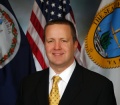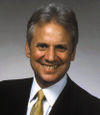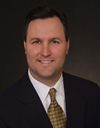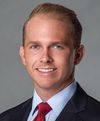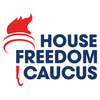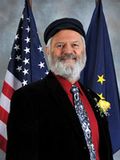Heart of the Primaries, Republicans-Issue 21 (June 11, 2018)

This week: previewing the June 12 primaries. Have a tip or see something we missed? Email us at editor@ballotpedia.org. And please share this newsletter with your colleagues!
Upcoming filing deadlines: June 12 (Connecticut), June 15 (New Hampshire)
Passed filing deadlines: 46
Upcoming elections: June 12 (North Dakota, Maine, Nevada, Virginia, South Carolina)
Declared U.S. Senate and U.S. House candidates: 1,184 Democrats, 980 Republicans
Republican pundits on the news
Where do Republican and conservative pundits disagree? Each week in Heart of the Primaries we bring you excerpts that highlight differing views.
“The difference in statewide Republican turnout with a GOP candidate on the ballot for governor has been estimated at 23 percent. This turnout will make the governor’s race competitive and could be the difference between winning and losing a number of House seats.
In addition to the disaster of a massive gasoline tax increase and California’s sanctuary policies that protect MS-13 gang members, Newsom’s promise to raise both income and property taxes and his proposal to have government take over all health care combine to make California Democrats more vulnerable than they have been in a quarter century.”
- Newt Gingrich, Fox News, June 7, 2018
“The results are encouraging for a Democratic Party that hopes to regain control of seven House seats in the golden state as part of a broader strategy to win the House by flipping 23 seats. Lt. Gov. Gavin Newsom won the gubernatorial primary handily, earning the opportunity to take on Republican John Cox, a successful businessman who’s embraced President Trump. Newsom, a liberal favorite with strong name recognition in his home state, bested Los Angeles Mayor Antonio Villaraigosa."
- Jack Crowe, The National Review, June 6, 2018
June 12 preview
Virginia Senate primary could affect down-ballot turnout in November
While incumbent Sen. Tim Kaine is generally favored to win re-election, which challenger emerges from the Republican Senate primary could affect down ballot races for the House.
Republican leaders fear Prince William County supervisor Corey Stewart, who is making his third statewide run, will be the nominee.
Geoffrey Skelley of Sabato's Crystal Ball said Stewart “may alienate even more suburban voters than [gubernatorial nominee Ed] Gillespie’s general election campaign appeared to in 2017.”
Stewart’s rivals are 2013 GOP lieutenant governor nominee E.W. Jackson and state Del. Nick Freitas.
A number of GOP officials back Freitas, who has criticized Stewart for his associations with white supremacists.
Stewart says his brand of politics will motivate Republicans and could help them win statewide. He has also claimed the state party is unfairly assisting Freitas.
SC-01 candidates focus on supporting Trump
Incumbent Rep. Mark Sanford (R) faces a primary challenge from state Rep. Katie Arrington in South Carolina's 1st Congressional District. Support for President Trump has been one of the race’s defining issues. Arrington is using Sanford’s criticisms of Trump as part of her campaigning strategy. In a February ad, Arrington said "[T]oo many Washington politicians only want to attack our president,” and that she wants to “help pass President Trump’s bold, conservative agenda." Sanford dismissed Arrington’s strategy, saying he has "a Republican challenger who says I don't vote with Trump enough, and I have a Democratic challenger who says I vote with him too often.” Trump won the District by 13 percentage points in 2016. Sanford has focused on curbing federal spending.
Crowded primary for NV-03
Nevada 3rd Congressional District incumbent Jacky Rosen (D) is running for the U.S. Senate in 2018 rather than seeking re-election. The GOP race for the swing seat has drawn nine candidates, with state Sen. Scott Hammond (R) and small-business owner Danny Tarkanian emerging as the frontrunners. Tarkanian entered the race in March after President Trump asked him to withdraw from the GOP Senate primary and instead run in the 3rd District. The National Republican Congressional Committee (NRCC) added Tarkanian to its Young Guns "contenders" program and he’s picked up endorsements from Nevada Attorney General Adam Laxalt, former Nevada Lieutenant Governor Lorraine Hunt-Bono, and the National Right to Life Committee. The National Rifle Association (NRA) is backing Hammond, who in addition to gun rights, is touting his work on education issues.
Ranked-choice voting, LePage legacy at stake in Maine gubernatorial election
All four candidates seeking the Republican nomination have promised to continue Gov Paul LePage's (R) legacy. Businessman Shawn Moody (R) has compared his background as a political outsider to LePage's and was endorsed by first lady Ann LePage (R). Former Department of Health and Human Services Commissioner Mary Mayhew (R) touts her experience in state government under LePage, while state Senate Majority Leader Garrett Mason (R) and state House Minority Leader Ken Fredette (R) highlight their support for LePage's legislative agenda. The primary will use ranked-choice voting, a system where voters rank their choices in order of preference from among the available candidates. Votes are tabulated in rounds. If no candidate gets more than 50 percent of the vote after the first round, the lowest ranked candidate is eliminated. Voters whose candidate is eliminated have their ballots re-allocated, with their next ranked choice getting their votes in the following round. The process continues until one candidate receives more than 50 percent of the vote
Mayhew has urged voters not to participate in ranked-choice voting, asking them to make him their sole choice.
McMaster's bid for a full term faces first test
Gov. Henry McMaster (R) faces four primary challengers in his bid for a full term, including former state Labor Commissioner Catherine Templeton (R) and businessman John Warren (R).
McMaster assumed office following Nikki Haley's (R) resignation to serve as U.S. ambassador to the U.N. He was the first statewide official in South Carolina to endorse Donald Trump in 2016, and was in turn the first gubernatorial candidate Trump endorsed this year. McMaster is emphasizing the state's economic performance since he took office in his run.
Templeton is running on her record of combating unions and reducing government during the Haley administration as well as her experience as an attorney. First-time candidate Warren has largely self-funded his campaign, contributing more than $3 million. Warren is running on his military and business background. If no candidate receives more than 50 percent of the vote, the top two finishers advance to a June 26 runoff.
Thirteen vie for Trey Gowdy's seat
Thirteen Republican candidates are running in the primary for retiring Rep. Trey Gowdy's (R) Greenville-based seat. All 13 say they support the president’s agenda but have differing campaign strategies.
Among the major candidates in the race are former state Sen. Lee Bright, state Sen. William Timmons, state Rep. Dan Hamilton, and radio host Josh Kimbrell (R). Bright has run a Trump-like campaign, promising to drain the swamp if elected. He is backed by Reps. Steve King (R-IA) and Thomas Massie (R-KY). Timmons, the leading fundraiser, emphasizes his business experience and ties to the Greenville area. He has been endorsed by Sen. Marco Rubio.
Hamilton touts his legislative and private sector experience. The National Association of Realtors have spent nearly $400,000 in support of his candidacy. Kimbrell, a radio personality, is supported by the Club for Growth. If no candidate receives more than 50 percent of the vote, the top two finishers advance to a June 26 runoff.
U.S. Congress
Freedom Caucus candidates have slight edge in U.S. House primaries
Candidates endorsed by the House Freedom Caucus or its leaders have won six open Republican primaries this year. Republicans running against Freedom Caucus candidates have won four primaries.
The last such matchup was in New Mexico’s 2nd District June 5 when Freedom Caucus ally state Rep. Yvette Herrell defeated Monty Newman.
Members of Freedom Caucus often oppose Republican House leadership on policy and procedures. Most recently, its members opposed the 2018 farm bill due to unrelated disagreements with leadership on immigration.
Trump endorses Donovan in NY-11 Republican primary
President Trump endorsed Dan Donovan in the June 26 Republican primary for New York’s 11th District. Donovan’s challenger is former incumbent Michael Grimm, who resigned from the seat in 2015 after pleading guilty to felony tax evasion. Donovan replaced him in a special election.
Personal attacks have helped define the campaign, with Grimm calling Donovan “Desperate Dan” and Donovan calling Grimm “the convict congressman.”
The seat is a potential Democratic pickup, leading Republicans like Trump and Rudy Giuliani to worry about a Grimm victory.
An April DCCC poll showed Grimm leading Donovan by 10 percentage points. Donovan’s campaign said the DCCC was “desperate for Michael Grimm because they know he has zero shot of winning in November.”
The district voted for Obama in 2012 and Trump in 2016.
Utah Senate debate Debate highlights differences on Trump
Former Massachusetts Gov. Mitt Romney and state Rep. Mike Kennedy recently faced off in a debate at Brigham Young University that culminated with Kennedy mentioning Romney called President Trump a “phony” and a “fraud” during the 2016 presidential election.
Trump has endorsed Romney in the primary.
“I've known the president for a long, long time and the president has endorsed me in this campaign — which shows he respects people who call ‘em like they see ‘em,” Romney said.
Kennedy won slightly more delegates than Romney at the state’s GOP convention, but because neither received more than 60 percent of the vote, it forced a two-way primary. Romney led Kennedy 67 to 24 percent in a May poll.
The two are running in the June 26 Republican primary to replace Sen. Orrin Hatch (R).
Candidate survey reply of the week
Ballotpedia is surveying candidates ahead of the primary and general elections. Are you a candidate for public office? Complete a survey, and you may be featured here.
Both sitting representatives and candidates for office hear many personal stories from the residents of their district. Is there a story that you’ve heard that you found particularly touching, memorable, or impactful?
"Every week I hear stories that touch my heart. This week's was from a veteran who lost his eyesight, has had multiple surgeries, and has overcome tremendous odds to get some semblance of life back. He said to me, "Bill, I go to the VA (hospital) every 3 weeks and for the past 4 months the paper towel holder in the men's bathroom has been broken. If this was on a base, it would have been fixed the day it broke. This is what is wrong with the VA. There is no urgency. No accountability. No understanding that the people they serve were schooled to take action, measure their actions and be held accountable." When he told me this, I realized that even though so much of his life had been destroyed from an incident in Iraq, he still holds the values of being a member of the armed services up as what is right and just in America."
- Bill Townsend, candidate for Nevada's 4th Congressional District
Read all of Bill Townsend's responses →
Special guest analysis: Nevada gubernatorial primaries
Dan McCaleb is news director of Watchdog.org. We invited him to share analysis of Nevada's gubernatorial primaries. Click here for more from Watchdog.org.
The bruising, expensive campaign between two Clark County commissioners for the Democratic gubernatorial nomination is winding down.
The stakes couldn't be much higher. Term limits prevent popular GOP Gov. Brian Sandoval from seeking a third term, and national analysts give the Democratic primary winner a legitimate shot in November's general election.
If that scenario plays out, either businessman Steve Sisolak or educator Chris Giunchigliani would become Nevada's first Democratic governor since the 1990s.
But let's not get too far ahead of ourselves...
Join Political Wire to get exclusive analysis and reporting, a 24/7 trending news aggregator, new features and no advertising.

Ballotpedia readers get 10% off an annual membership with coupon code “Ballotpedia”
State executives
Secretly-recorded audio of Georgia gubernatorial candidate released
The Atlanta Journal-Constitution released an audio recording of Georgia gubernatorial candidate Lt. Gov. Casey Cagle (R) discussing the race with former opponent Clay Tippins (R) Thursday.
In the recording, which Tippins provided to the paper, Cagle says he pushed for passage of an education bill he opposed to reduce the chance fellow candidate Hunter Hill (R) would receive financial support from an outside group supporting additional charter school funding.
Tippins was among the six candidates defeated in the May 22 primary. Cagle faces Secretary of State Brian Kemp (R) in a July 24 runoff.
According to the Journal-Constitution, the recording could affect which candidate Hill and Tippins endorses in the runoff.
Legislatures
Republicans control 32 state legislatures heading into the November 2018 midterms. Over the eight years of the Obama presidency, Republicans picked up 948 seats in state legislatures. This chart shows the number of candidates running, incumbents retiring, primary challenges to incumbents, and total primaries for Republicans in 2018 compared to the same point in the 2016 elections based on the states where filing deadlines have passed.
Takeaways: In Alabama*, Arkansas, California***, Colorado, Georgia, Idaho, Illinois, Indiana, Iowa, Kentucky, Maine, Maryland*, Michigan, Missouri, Montana, Nevada, New Mexico**, North Carolina, North Dakota, Ohio, Oklahoma, Oregon, Pennsylvania, South Carolina**, South Dakota, Tennessee, Texas, Utah, Washington*** and West Virginia, where candidate lists are now final, the number of Republican candidates running has increased 6.0 percent. The number of incumbents retiring has increased 38.8 percent. The number of Republican incumbents facing challenges has increased 3.2 percent and the number of Republican primaries has increased 16.5 percent.
*Did not hold state legislative elections in 2016
**Not holding state Senate elections in 2018
***Holds top-two primaries instead of Democratic and Republican primaries
Elections set for coalition Republicans in Alaska state House
The three Alaska House Republicans who broke ranks and joined the Democratic-led majority coalition after the 2016 elections face contested re-elections this year.
Paul Seaton, Finance Committee co-chairman for the majority coalition, is running as a nonpartisan candidate in the Democratic primary. Three Republicans are running for the GOP nomination to challenge him in November.
Rules Committee chairwoman Gabrielle LeDoux and majority whip Louise Stutes both filed to run as Republicans. Each faces a primary challenger and a number of Democratic challengers.
Alaska GOP Chairman Tuckerman Babcock is trying to remove LeDoux and Stutes from the Republican ballot, challenging a Division of Elections decision allowing them to remain. Babcock invited all three to leave the party after their defections denied Republicans a state House majority.
Smith becomes Ohio state House speaker..for now
Five weeks after the Ohio state House GOP primaries, state Rep. Ryan Smith was elected state House speaker for the rest of 2018. The position became vacant shortly before the primaries when Speaker Cliff Rosenberger, a Smith ally, resigned due to an FBI investigation into his activities with lobbyists.
Smith might not remain speaker through 2019. He and another prospective speaker—state Rep. Larry Householder—supported opposing slates of candidates in the Republican primaries. Householder’s candidates won 15 races, while Smith’s won three.
The two will likely face off for the 2019-2020 speakership after the November elections. Householder and his allies opposed Smith in his bid to be the temporary speaker. Householder did not run for the position.
Months after expulsion from Arizona state House, Shooter is running again
Don Shooter is running for the Arizona 13th District Senate seat he once held after being expelled from the Arizona state House in February over sexual harassment allegations.
At least two other Republicans have filed for the Aug. 28 primary.
Power Players
A weekly feature on an influencer shaping the direction of the party.
National Rifle Association
The National Rifle Association (NRA) has endorsed several Nevada candidates ahead of the June 12 primary, including Dean Heller for Senate, Scott Hammond for NV-03, and Adam Laxalt for governor.
The NRA also issues grades to many candidates, ranging from A+ to F. An “A+” means a candidate has made “a vigorous effort to promote and defend the Second Amendment,” according to the group’s website, while an F means they are a “true enemy of gun owners' rights.” Heller and Hammond both received “A” ratings and Laxalt received an “A+.”
The NRA’s Political Victory Fund broke a 15 year-old fundraising record in March, reportedly bringing in $2.4 million between March 1 and March 31. The Miami-Herald reported it was the most money the PAC reported raising in a single month since June 2003.
What we're reading
- Gas tax repeal fuels Republican candidates in primary election The San Diego Tribune
- In 2018 GOP Primaries, Anti-establishment Means Pro-Trump Conservative Review
- Trump Declares Primaries Delivered 'Great Night' for GOP Newsmax
- California Primaries Results: No Blue Wave Liberty Nation


